EXPERT
Issues
Locations
DOWNLOAD
The VRIC Monitor is a one-of-a-kind, monthly report from SFS tracking extra-regional influence in Latin America. VRIC stands for Venezuela, Russia, Iran, China where Venezuela represents the Bolivarian Revolution and the broader Bolivarian Alliance or ALBA. Likewise, Iran represents the Iranian Revolution and a growing presence of Middle Eastern actors in Latin America, namely its chief proxy, Hezbollah. The monitor is comprised of open source information selected by SFS analysts and fellows. This is not a complete list of media reports on VRIC presence in Latin America, but a snapshot of open-source media highlighting the major areas of VRIC influence.
Overview
The Venezuela crisis continues to serve as a proxy battle by the VRIC nations against the United States. Russia is the most forward-facing member of the alliance with Vladimir Putin threatening to act in the event of U.S. intervention and helping build up the Maduro military with more shipments of riot gear, tear gas canisters, and a new helicopter training facility in Venezuela. But Russia is not Venezuela’s only ally; Nicolás Maduro and his regime are shoring up its international support within the non-aligned movement. Meanwhile, the U.S. tightens sanctions against Venezuela and other ALBA nations, namely Nicaragua and Cuba, adding to the recent measures taken against Iran and Hezbollah, including officially designating the IRGC as a terrorist entity and listing a $10 million reward for information that can disrupt Hezbollah’s financial networks.
As Venezuela takes center stage, its ally Bolivia moves quietly to strengthen its cooperation with VRIC allies and non-ALBA nations in South America. It seems that a strategic play is taking place at the Port of Ilo, Peru potentially providing Bolivia with alternative access to the Pacific Ocean. Moreover, China deepens its financial ties to Latin America with its second Belt and Road Forum for International Cooperation, and Turkey, Qatar, and the UAE are increasing their diplomatic engagement with the region in an effort to form direct commercial ties. April has seen burgeoning activity from all VRIC nations in Latin America, highlighting a notable trend that when one VRIC nation asserts its presence in a particular country, the other allies compound with additional deals and diplomatic engagement further reinforcing the VRIC alliance in Latin America.
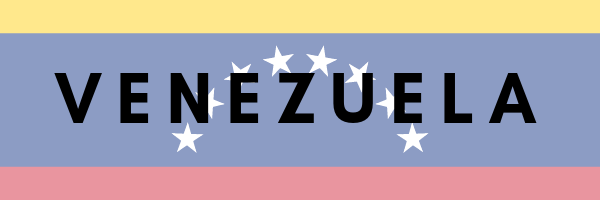
As the U.S. mounts increased pressure against the Maduro regime in Venezuela, Nicolás Maduro and his foreign minister, Jorge Arreaza, shore up their international support from smaller, non-aligned nations such as Abkhazia. Meanwhile, fellow ALBA members, Nicaragua and Cuba, continue to show their solidarity with the Maduro regime in the face of mass mobilizations, U.S. sanctions, and other measures aimed at crippling the regime.
Among the ALBA nations, Bolivia is one of the few members not yet sanctioned by the U.S. President Evo Morales is capitalizing on this by strengthening his image overseas and with other South American nations, namely in Argentina and Peru. In late April, Argentine President Mauricio Macri met with Evo Morales to deepen ties on energy cooperation in the lucrative lithium industry. In Peru, Bolivia is aggressively pursuing alternative access to the Pacific Ocean after the Hague’s ruling earlier this year denying Bolivia sea access via Chile. China is helping Bolivia in this pursuit by investing and expanding Peru’s southern port of Ilo and in other critical infrastructure projects in both countries that would facilitate quicker access to the port and the Pacific Ocean.
VENEZUELA AID TRACKER
| United States | $76 million dollars |
| Argentina | Help unit |
| Canada | $39 million dollars |
| Chile | 17 tons of food & medical supplies |
| China | 65 tons of medicine & supplies |
| EU | $65 million euros |
| Germany | €5 million euros |
| Iran | Unspecified pledge & medical aid |
| Italy | €2 million euros |
| New Zealand | $500,000 dollars |
| Palestine | Surgical team |
| Russia | 335 tons of food & medical supplies |
| Spain | €2 million euros |
| Sweden | $7 million dollars |
| Taiwan | $500,000 dollars |
| Turkey | Pledged, but none specified |
| UAE | Dh10 million |
| UK | £6.5 million pounds |
- He is one of the most powerful leaders of the Venezuelan government, a hard-liner who has put down protests, confronted rebels and been a constant presence at the side of Nicolás Maduro, the country’s authoritarian president. But for years, Tareck El Aissami, one of Mr. Maduro’s closest confidants, has also been the target of wide-ranging investigations by his own country’s intelligence agency into his ties to the criminal underworld. – The New York Times on 02-MAY
- A reporter from the Caracas Chronicles documents “a day with gunshots,” referring to May 1. Naky Soto identifies police brutality, political repression, restriction of the press, and the crime plaguing Venezuela while innocent protesters bear the brunt of the political heat. – The Caracas Chronicles on 02-MAY
- On Tuesday, April 30, Juan Guaidó announced that Nicolás Maduro does not have the support of the country’s armed forces, despite the fact that Maduro took to the airwaves April 30 to say the military stands behind him. – CNN News on 30-APR
- Venezuela said on April 24 it was withdrawing from the Organization of American States, deepening the diplomatic isolation of the socialist-run nation that is already out of step with Latin America’s steady shift to the right. – Reuters on 26-APR
- The leaders of the Lima Group boycotted the UN General Assembly when Venezuelan Minister of Foreign Affairs Jorge Arreaza began to speak. Jorge Arreaza spoke in the name of the non-aligned movement, but few diplomats stayed to listen to his speech. – La Republica on 24-APR (content in Spanish)
- The Minister of Foreign Relations of the self-proclaimed republic of Abkhazia, Daur Kove, expressed his support for the Maduro regime during the 5th International Economic Forum in Yalta. – Israel Noticias on 21-APR
- The Department of Treasury is designating the Central Bank of Venezuela to prevent it from being used as a tool of the illegitimate Maduro regime, which continues to plunder Venezuelan assets and exploit government institutions to enrich corrupt insiders. This action targets a key entity and individual in Venezuela’s financial sector, which the Maduro regime continues to exploit in order to stay in power, and illustrates the Trump Administration’s resolve to prevent the Maduro regime from gaining access to the U.S. financial system, including through Venezuela’s central bank. – U.S. Department of Treasury on 17-APR
- More than 900 political prisoners are being held across Venezuela, according to Foro Penal, a nonprofit human rights organization that tracks and defends detainees. The ruling Socialist Party routinely detains political opponents — including opposition leader Leopoldo López and, recently, interim president Juan Guaidó’s chief of staff. – The Washington Post on 12-APR
- The International Monetary Fund suspended Maduro’s access to almost $400 million of special drawing rights, citing political chaos since National Assembly President Juan Guaidó claimed in January that he was the nation’s rightful leader, said two people familiar with the matter. Venezuela already whittled its SDR holdings down from almost $1 billion in March 2018. – Bloomberg on 10-APR
THE ALBA
- Bolivia is diversifying its strategy at points of entry and commercial exit to eliminate dependence on Chilean ports, given the delays in their operations that caused economic losses in the Arica installation in 2018. Sanchez also said that the Bolivian strategy aims to achieve a fair treatment for foreign trade with operations by Ilo (Peru), the Paraguay-Parana waterway. – Hellenic Shipping News on 25-APR
- Bolivia is upping water infrastructure investment. The country, which has faced severe drought in its highland regions in recent years, is accelerating investment in potable water and irrigation projects ahead of the approaching dry season. – BNAmericas on 26-APR
- The Argentine government has offered to gift one FAdeA IA-63 Pampa III jet trainer to the Bolivian Air Force (Fuerza Aérea Boliviana – FAB) this year if La Paz agrees to deliver more natural gas than the minimum quantity stipulated by an agreement between the two countries – Janes on 23-APR
- Cuban state media reports that on April 24, Bolivia promoted the integration of peoples from various spheres, including the Community of Latin American and Caribbean States (CELAC), a mechanism in which it holds the pro tempore presidency. The 22nd Meeting of National Coordinators of the CELAC took place in the city of Santa Cruz on April 24, with the presence of representatives of 28 of the 33 member countries of that regional bloc. – Prensa Latina on 24-APR
- Bolivian President Evo Morales and Argentine President Mauricio Macri are expected to hold talks on a number of energy-related issues. However, the two leaders will likely focus on the lithium industry. Along with Chile, Bolivia and Argentina make up the so-called “lithium triangle.” The three countries together possess more than half the world’s deposits of the light metal (approximately 54%). Lithium is a significant component of the batteries that power smartphones, tablets, laptops, and electric cars. – Foreign Brief on 22-APR
- National Security Advisor John Bolton recently announced new policies aimed to hasten the restoration of democracy in Venezuela. One of the initiatives is to fully implement Title 3 of the United States’ trade embargo against Cuba. Title 3 has been on the books for more than twenty years, yet this will be the first time it will be fully implemented. What that means is that U.S. citizens will now be allowed to sue foreign companies trafficking in stolen property in Cuba. The move is meant to help increase pressure on the Cuban regime and their allies in Venezuela. – The National Interest on 21-APR
- Venezuela’s state-run PDVSA has shipped one million barrels of oil to Cuba days after the United States imposed fresh sanctions on vessels and firms involved in exports to the island in an effort to halt oil trade between the political allies, according to a PDVSA document and tanker tracking data. – Reuters on 12-APR
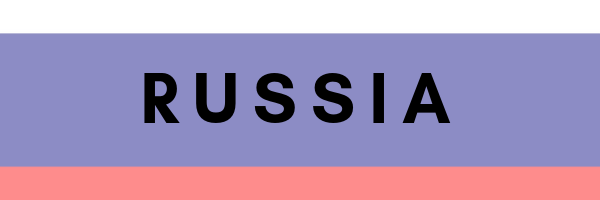
Russia continues to be the most forward-facing member of the VRIC alliance, serving as a facilitator and main defense supplier. Earlier in April, Buzzfeed reported that a Russian vessel en route to Venezuela attempted to dock a warship in Malta to purchase riot gear and gas canisters. This adds to a new helicopter training facility recently inaugurated in Venezuela. Russia is providing defense support to other Latin American nations as well, by training Nicaraguan police and increased defense cooperation with Paraguay. Aside from defense cooperation, Russia furthers its regional nuclear cooperation with a recent set of talks with Cuba. Lastly, Russian state media reports that Moscow and Lima may meet at the upcoming Asia Pacific Economic Cooperation (APEC) summit in November in Chile. This announcement follows a month of heightened Peru-China cooperation to include infrastructure investments at the Port of Ilo in Southern Peru.
- The Director General of Europe of the Ministry of Foreign Relations of Peru informed Russia’s state media Sputnik that he spoke with the director of the Department of Latin America from the Russian Foreign Ministry, Alexander Schentinin about the possibility of Peru’s president Martin Vizcarra could potentially meet with Russian President Vladimir Putin at the Asia-Pacific Economic Cooperation summit in Chile. – Sputnik on 27-APR
- Russia’s state media reports that Paraguay is beginning its defense industry cooperation with Russia, the country’s Deputy Defense Minister Gladys Ruiz Vda De Pecci told Sputnik. Such Paraguayan-Russian cooperation might first be focused on training of personnel, Pecci added. The deputy defense minister also did not rule out peacekeeping cooperation in various regions of the world. Sputnik on 27-APR
- Cuban state media reports that the Cuban Agency for Nuclear Energy and Advanced Technologies (Aenta) highlighted the signing of a protocol of talks between Cuba and Russia to develop nuclear energy for peaceful purposes. The agreement was signed between the First Deputy Minister of the Cuban Ministry of Science, Technology and Environment Fernando Gonzalez and the International Business Director of the Russian State Atomic Energy Corporation Rosatom Boris Arseev. – Prensa Latina on 24-APR
- In the middle of a socio-political crisis ensuing in Nicaragua since April 18, where the police is implicated as responsible for more than 300 deaths in the country, officials from the institution are receiving special training from the Russian police. The Russian police gave a counterterrorism course to 40 public security agents from El Salvador, Guatemala, Mexico, and Nicaragua. This course caused uncertainty in the Nicaraguan population since the police classified participation in protests as terrorist actions – El Nuevo Diario on 23-APR (content in Spanish)
- Venezuelan state oil company PDVSA has asked at least two of its clients to make payments for Venezuelan oil via Russian state energy giant Rosneft, as it comes under pressure from U.S. sanctions, according to a PDVSA source and documents reviewed by Reuters.The proposed payment mechanism is the latest sign of the growing proximity of Venezuela’s cash-strapped government to Russia as the United States tightens a financial noose around Nicolás Maduro. Russia has publicly said the U.S. sanctions are illegal and it would work with Venezuela to weather them. In response to Reuters’ story, Rosneft has denied it has acted as an intermediary for payments to PDVSA. – Reuters on 18-APR
- Russia has withdrawn a request to dock a warship in Malta that officials told BuzzFeed News was bound for Venezuela. Malta planned to reject the request. It can also be revealed for the first time that Russian diplomats were trying to purchase riot gear and gas canisters on the island, which officials suspect they wanted to load on to the ship. – Buzzfeed News on 18-APR
- Russia continues to defy the U.S. in Venezuela as one of Russia’s largest state-run holding conglomerates opens a helicopter training center in an undisclosed location within the country. Rostec State Corporation said that “a modern helicopter training center was opened” under a contract between Moscow-based Rosoboronexport and Caracas’s state-run CAVIM firearms manufacturer. The center was inaugurated the same day that President Donald Trump warned that “Russia has to get out of” Venezuela and “all options are open” in ensuring it does. – Newsweek on 02-APR
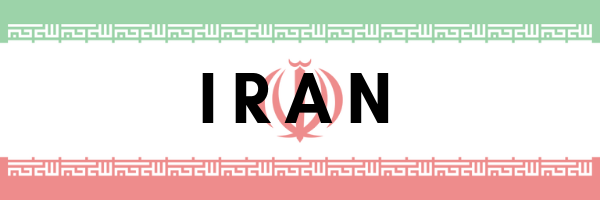
Iran’s presence in Venezuela is gradually shifting from covert to overt activity. Previously, Iran only offered diplomatic support and a pro-Maduro media campaign. In April, Iran offered to send troops from the Islamic Revolutionary Guard Corps (IRGC) to Venezuela days after the U.S. Department of Justice declared the IRGC a terrorist organization. This recent designation is part of increased pressure by the Trump administration against Iran and its proxies, namely Hezbollah. The Justice Department also issued a $10 million reward in April for anyone with information that could disrupt Hezbollah’s financial networks. Bolivia’s foreign minister called for broadening of ties with Iran as the Islamic Republic’s ambassador in La Paz finished his tour in La Paz. Lastly, Iran’s solidarity with China extends to the space domain as the Islamic Republic’s space agency begins collaborating with China’s new Space Science observatories, including one in Peru.
- Iranian state media reports that astronomers at the Iranian Space Agency are collaborating with the Asia-Pacific Space Science Observatories (APSSO) Project, Mehr said. The international project aims to establish eight new observatories in member states, namely Iran, Bangladesh, Thailand, China, Mongolia, Pakistan, Peru, and Turkey. The observatories not only provide information about satellites, space debris, and space objects but also an updated astronomical data bank for member states. – Tehran Times on 16-APR
- The Iranian Foreign Minister Mohammad Javad Zarif offered to send troops from the Islamic Revolutionary Guard Corps to Venezuela to protect Nicolás Maduro, according to Channel 13 News. The offer comes in the midst of an economic and humanitarian crisis in Venezuela. – Diario Correo on 15-APR (content in Spanish)
- According to Iranian state media, Bolivia calls for broadening of ties with Iran. Undoubtedly, Iran and Bolivia will foster their relations in the future,” Bolivian Foreign Minister Diego Pary said in a farewell meeting with Iranian Ambassador Reza Tabatabaee Shafiee. The Bolivian foreign minister lauded the efforts made by the Iranian ambassador to improve the two countries’ relations during his mission in the Latin American country. – Fars News on 12-APR
- On April 8, the Secretary of State announced that he intends to designate the Islamic Revolutionary Guard Corps (IRGC) as a Foreign Terrorist Organization (FTO) under Section 219 of the Immigration and Nationality Act. After the FTO designation takes effect, any person will be prohibited from knowingly providing material support or resources, as defined under the law, or attempting or conspiring to do so, to the IRGC. The IRGC’s active support for terrorism is unacceptable, and the Department of Justice continues to support the administration’s efforts to hold the Iranian regime accountable for its actions – The Department of Justice Office of Public Affairs on 08-APR
- An Iranian delegation landed in Venezuela on April 8 to discuss launching direct flights between the two countries, Venezuela’s foreign minister said, as Tehran voices support for Nicolás Maduro against the opposition backed by most Western countries. – Reuters on 8-APR
- An Iranian news portal in Latin America has published an article claiming that Israel uses Palestinian prisoners for “new medical trials.” Despite citing no evidence for the claim, the HispanTV report has spread to outlets across Latin America, including the El Ciudadano monthly in Chile and the website of an association of Cuban jurists. It was published on Uruguay’s La Republica website but taken down after a reader complained. – The Jerusalem Post on 06-APR
- On April 4, the U.S. Department of State issued a fact sheet on the Maximum Pressure Campaign on the Iranian Regime stating maximum economic pressure via sanctions, increasing diplomatic engagement, and restoring deterrence. – The Department of State on 04-APR
HEZBOLLAH
- The U.S. State Department offered a reward yesterday of $10 million for information leading to the disruption of the finances of Lebanon’s Hezbollah group. The fund is for those who can identify Hezbollah’s donors, financial institutions, real estate, and businesses. The information requested was focused on three of Hezbollah’s supposed financiers; Mohammed Bazzi, Adham Tabaja, and Ali Charara. The State Department say these men are part of Hezbollah’s global financial network and that they are involved in infrastructure and construction businesses across four continents. – The Middle East Monitor on 23-APR
QATAR
- Qatari media reports that the State of Qatar has provided a $100,000 grant to support sons and daughters of police officers who died during their national duty in the Republic of El Salvador. – The Peninsula on 16-APR
TURKEY
- Bloomberg documents the relationship between Turkey and Venezuela via Alex Nain Saab Moran, whom U.S. investigators believe to be one of the most powerful financial enablers of the Maduro regime. Maduro entrusted Saab with the gold trade with Turkey, which has been under fire lately following heavy U.S. sanctions. – Bloomberg on 25-APR
UAE
- UAE state media reports that ways to accelerate cooperation between the parliaments of UAE and Costa Rica were the main focus of a meeting Dr. Amal Abdullah Al Qubaisi, Speaker of the Federal National Council, FNC had with Francisco Chacón Hernández, Ambassador of Costa Rica to the UAE, recently. During their meeting, held at the FNC’s headquarters, both sides agreed on the importance of exchanging parliamentary visits and expertise, and increasing consultations on issues of mutual interest, as well as coordinating their stances toward international parliamentary forums.- Emirates News Agency on 23-APR
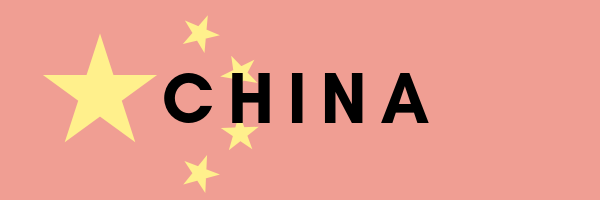
China’s influence in Latin America is highlighted by its Second Belt and Road Forum for International Cooperation, where Beijing engaged with a host of Latin American countries to deepen diplomatic and economic ties. Its increasing cooperation with Argentina, Peru, and the Caribbean, in particular, seems part of a larger geopolitical effort by the VRIC alliance. This was demonstrated in April by many Caribbean nations expressing support for the reunification of the Korean peninsula. Among some of the extra-economic cooperation with Latin America, China continues to export its surveillance technology to the region under the pretext of citizen security initiatives. Uruguay has installed the first of a few thousand Chinese security cameras in the country in the PRC’s latest move to solidify their surveillance methods abroad.
- Peru will sign a memorandum of understanding to join China’s Belt and Road infrastructure initiative in coming days, China’s ambassador said, despite recent warnings from the United States about the Beijing’s rise in Latin America. – Reuters on 25-APR
- In an arid, lunar-like landscape in the sunny highlands of northern Argentina, South America’s largest solar farm is rising, powered by funding and technology from China. The state-funded institution financed 85 percent of the project’s nearly $400-million price tag. At three percent annual interest over 15 years, it is “cheap money” for Jujuy, a person familiar with the terms said. The catch- the province had to purchase nearly 80 percent of the materials from Chinese suppliers. – Reuters on 23-APR
- Under President Xi Jinping, the Chinese government has vastly expanded domestic surveillance, fueling a new generation of companies that make sophisticated technology at ever lower prices. A global infrastructure initiative is spreading that technology even further. Ecuador shows how technology built for China’s political system is now being applied, and sometimes abused, by other governments. Today, 18 countries, including Zimbabwe, Uzbekistan, Pakistan, Kenya, the United Arab Emirates and Germany, are using Chinese-made intelligent monitoring systems, and 36 have received training in topics like “public opinion guidance,” which is typically a euphemism for censorship, according to an October report from Freedom House, a pro-democracy research group. – The New York Times on 24-APR
- Chinese President Xi Jinping and his Chilean counterpart Sebastian Pinera held talks in Beijing on Wednesday ahead of the Second Belt and Road Forum for International Cooperation. China and Chile should take joint pursuit of the Belt and Road Initiative as a new opportunity to deepen political mutual trust and pragmatic cooperation, and push the China-Chile comprehensive strategic partnership to a new level, Xi said. Xi said the two countries should promote the upgrading of bilateral trade and investment, and strengthen cooperation in areas such as mining, clean energy, telecommunication, e-commerce, technological innovation and Antarctic science. – Xinhua on 24-APR
- The Asian Infrastructure Investment Bank announced the inclusion of four new countries, including Uruguay, which brings the total number of nations affiliated with the financial institution to 97. – Ecos Uruguay on 22-APR (content in Spanish)
- As Jamaica signed on to the Chinese Belt and Road Initiative (BRI) on April 11, a report to the U.S. Congress entitled ‘China’s Engagement with Latin America and the Caribbean’ sought to examine the implications of growing Chinese influence in the region. – St. Lucia News on 22-APR
- Chinese state media reports that the country is willing to enhance cooperation with El Salvador to promote the healthy and stable development of bilateral ties, Li Zhanshu, chairman of the National People’s Congress (NPC) Standing Committee, said. During his meeting with Jose Serafin Orantes, the first vice president of the Legislative Assembly of El Salvador, Li said the government and the people of El Salvador last August chose to recognize and abide by the one-China policy and became the 178th country to forge diplomatic ties with China. – Xinhua on 15-APR
- There are fears that the Communist Chinese are attempting to turn the Caribbean into a Chinese lake. Only 55 miles east of Palm Beach, Florida, on Grand Bahama Island, a business based in Hong Kong (now controlled by the Chinese Communists) is spending $3 billion on a deep-water container facility, known as the Freeport Container Port. – The New American on 13-APR
- In February 2019, the small South American nation of Uruguay began installing the first of 2,100 surveillance cameras, donated by the People’s Republic of China to improve control of its borders with neighboring Argentina and Brazil. The move highlights the significant deepening of the Uruguay-PRC relationship over the last decade, including their establishment of a “Strategic Partnership” in October 2016, and the signing of a memorandum of understanding in August 2018 for Uruguay to join China’s Belt and Road initiative. – Newsmax on 12-APR
NORTH KOREA
- North Korean state media reports that an appeal to the peace-loving people of the world from the Latin American and Caribbean Regional Committee to Support the Reunification of Korea was adopted at an American regional internet seminar held in Mexico on April 15 ahead of the first anniversaries of the historic Panmunjom Declaration and June 12 DPRK-U.S. joint statement. – KCNA Watch on 25-APR
Disclaimer: The VRIC Monitor does source a limited amount of media reports from state-owned or -controlled media outlets from VRIC nations. These media reports are carefully selected and solely intended to report on cultural, diplomatic, economic, or military activities that are not reported on by other media and relevant for understanding VRIC influence in the region. Given the inevitability that state propaganda will be mixed into these articles, we ensure that reporting from state-media outlets is no more than 20 percent of the overall VRIC Monitor and exclude any opinion pieces or anti-US (anti-West) declarations of any kind.


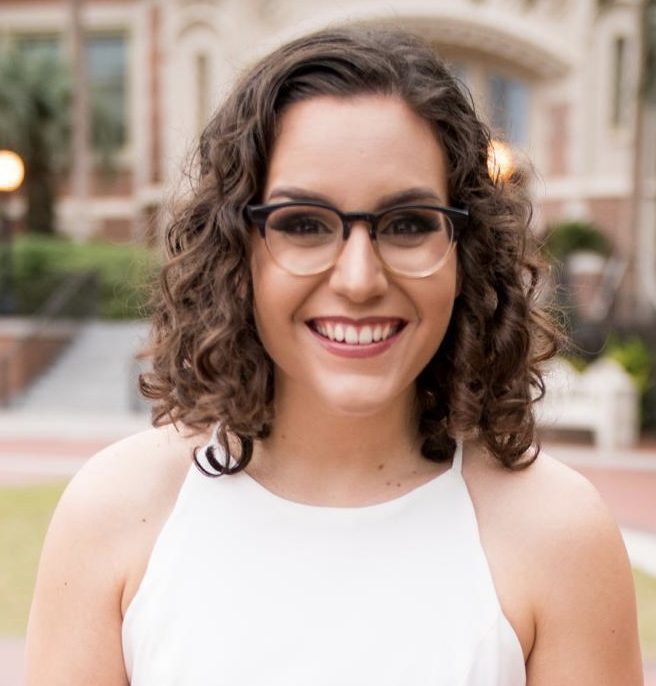 Christina Armes Hunter
Christina Armes Hunter